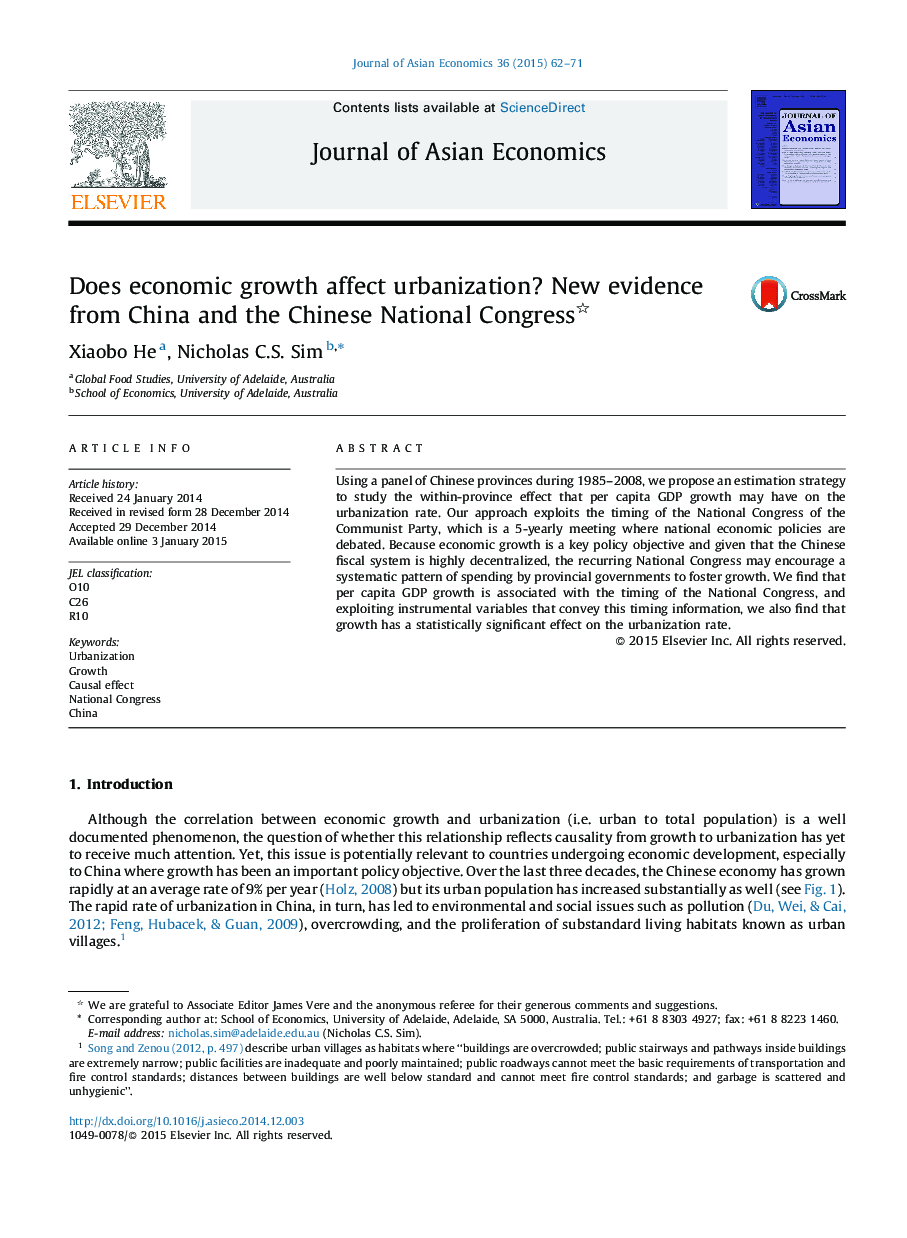| Article ID | Journal | Published Year | Pages | File Type |
|---|---|---|---|---|
| 5087286 | Journal of Asian Economics | 2015 | 10 Pages |
â¢Whether growth affects urbanization is a debatable topic among researchers today.â¢We study this issue for the case of China, understanding that growth is endogenous.â¢We construct IVs using the timing of the National Congress of the Communist Party.â¢Our 2SLS estimates show that growth can cause urbanization.
Using a panel of Chinese provinces during 1985-2008, we propose an estimation strategy to study the within-province effect that per capita GDP growth may have on the urbanization rate. Our approach exploits the timing of the National Congress of the Communist Party, which is a 5-yearly meeting where national economic policies are debated. Because economic growth is a key policy objective and given that the Chinese fiscal system is highly decentralized, the recurring National Congress may encourage a systematic pattern of spending by provincial governments to foster growth. We find that per capita GDP growth is associated with the timing of the National Congress, and exploiting instrumental variables that convey this timing information, we also find that growth has a statistically significant effect on the urbanization rate.
